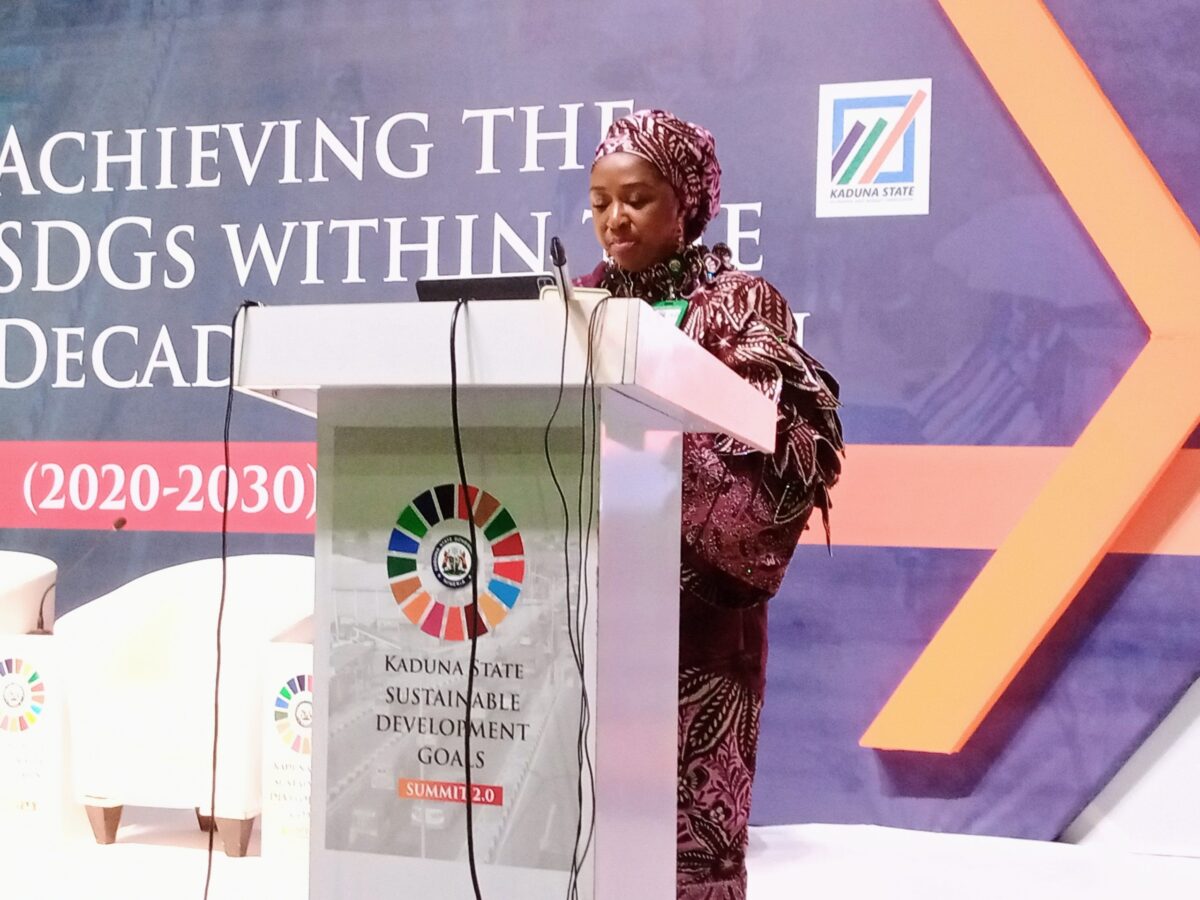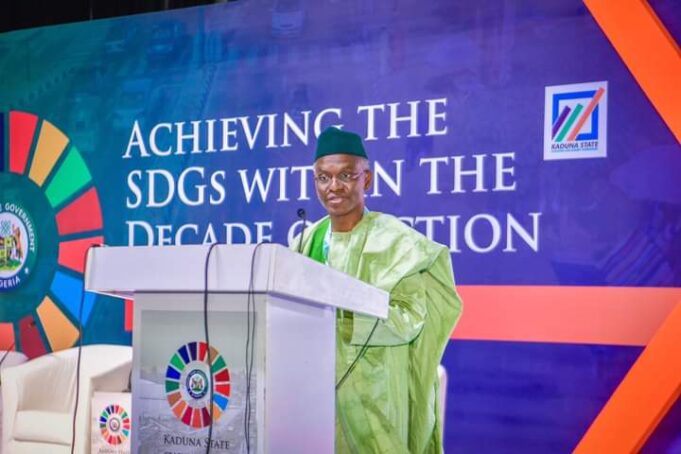The Kaduna State Government has said that it would sustain the remarkable progress being recorded in the attainment of Sustainable Development Goals (SDGs).
The Kaduna State Commissioner for Planning and Budget Commission (PBC), Hajiya Umma Aboki, stated this in Kaduna on Thursday, at the opening of the 2022 SDGs Summit 2.0, organised by the SDGs Unit, PBC, to increase awareness, renew commitment and mobilise resources to accelerate achievement of the goals.
She said that the move was to build upon the benefits and successes of the collaboration emphasised at the maiden SDGs Summit 1.0 in 2019.
Aboki said that the vision of the state was to improve the lives and well-being of its citizens, through the prioritisation of the achievements of the SDGs, in collaboration with Donor Partners.

The commissioner emphasised that the vision had not been darkened in spite of the COVID-19 pandemic, which left devastating socio-economic impacts on people’s well-being, and reversed some of the gains made decades ago.
She said that the cardinal objective of the summit was to facilitate the convergence of multi-stakeholders, to identify opportunities for enhanced synergies, in order to address the gaps.
Aboki said that the collaboration between the state government, development partners and other stakeholders being led by the PBC, was yielding positive results.
According to her, there are remarkable progresses on the 17 SDGs in the state.
Aboki disclosed that the state had recorded a significant reduction in the prevalence of stunted children from 56.6 per cent to 48.1 per cent.
She added that completion rates for lower primary, primary and secondary education stood at 86 per cent, 68 per cent and 59.1 per cent respectively.

“There is also an increase in basic education enrolment from 1.1 million learners in 2015 to 2.1 million in 2020, with access to electricity in schools, expanded from six to 29.5 per cent.
“There is equally a remarkable decline in female unemployment rate to 24 per cent, thereby losing the gender gaps, while access to safe drinking water has also increased marginally from 65.5 per cent to 67 per cent.
READ ALSO: CU best graduating student: I became chartered accountant in 3rd year
“Also, the current level of urbanisation is estimated at 28.8 per cent, with domestic resource mobilisation slightly improved.
“This is evident with the total government revenue as a percentage of GDP rising from 3.4 per cent in 2017 to 4.1. in 2020, among other progresses,” she said.
Aboki said that the state considered the SDGs commitment areas as genuine platforms for building on the successes achieved, by further strengthening reform initiatives.
She noted that sustainable urban development and management were crucial to the quality of life of the people.
Aboki said that efforts to sustainably maintain the successes and results required knowledge, commitment, will-power, experience-sharing, continuous collaborations, and partnerships.
According to her, scaling up the successes of the SDGs 2030 Agenda requires a government that has the will-power as laudably exemplified in the leadership of Governor Nasir El-Rufa’i.
- Ojudu’s Open Letter is a weapon of malice - March 25, 2025
- Imagine Rivers State without a State of Emergency - March 25, 2025
- INTIMATE AFFAIRS: Accidental pregnancies, By FUNKE EGBEMODE - March 22, 2025









